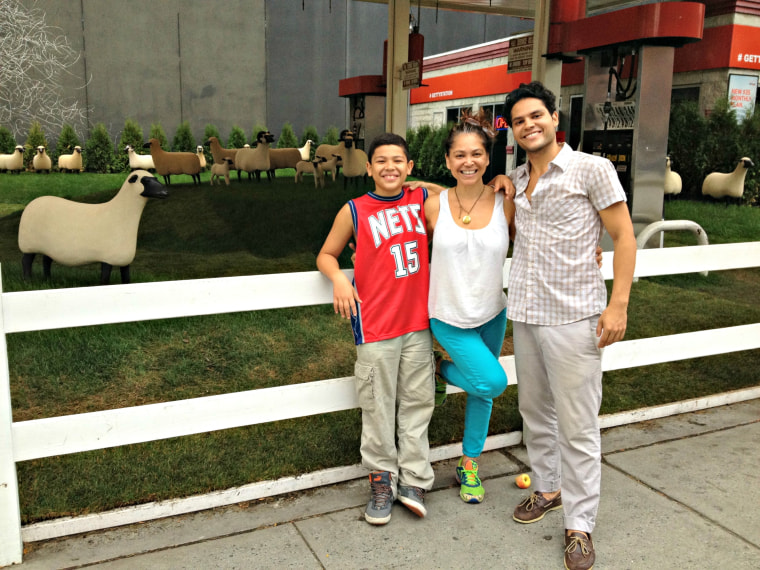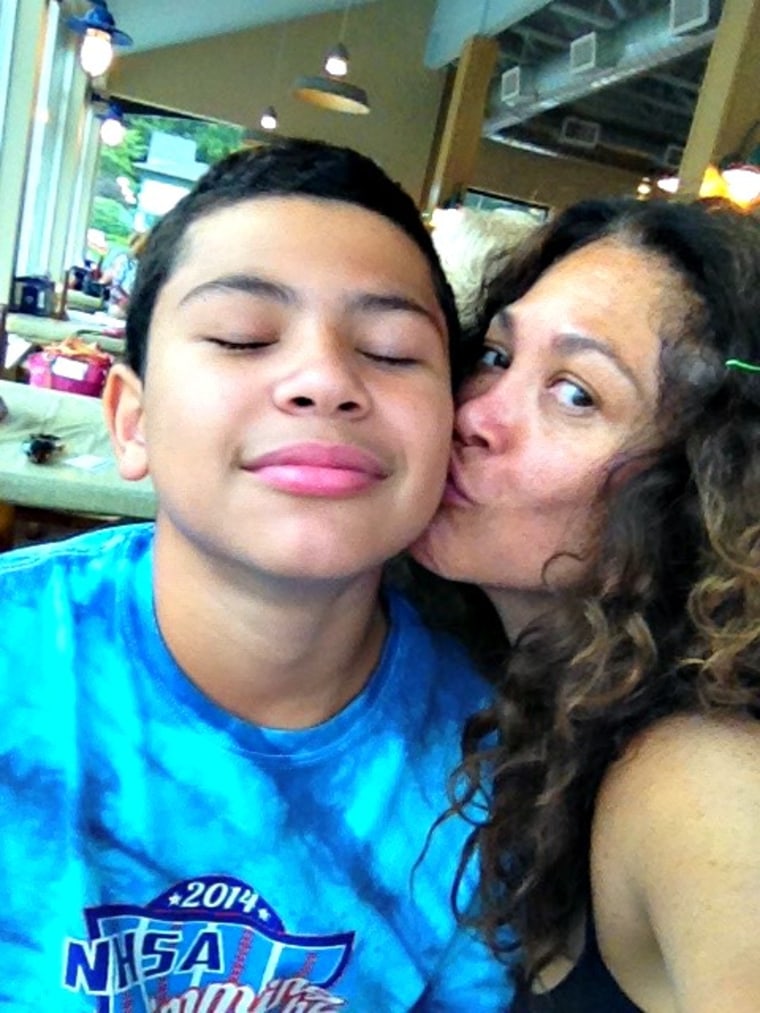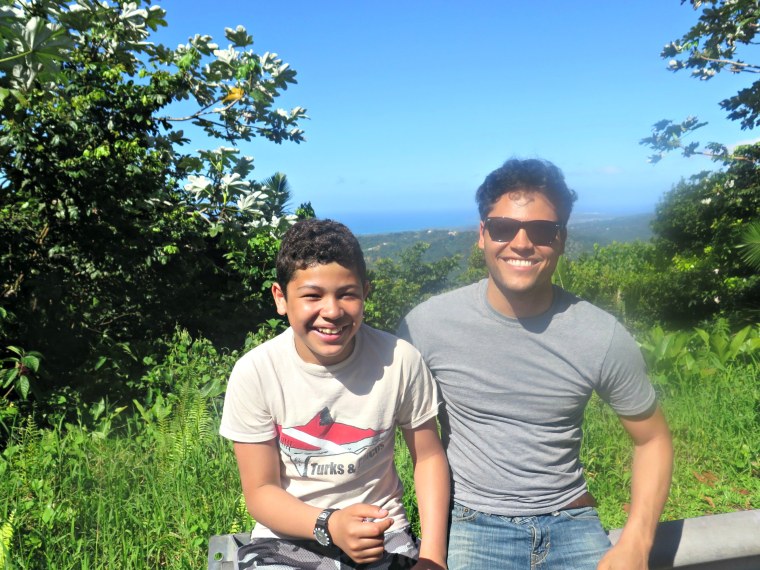I spoke my first words in Spanish. It is the language that my dreams are made of. It’s how I communicate with my elders, siblings, and extended family. And, while I have lived in America for four decades, my mother and I have never had a conversation in English. Ever. Spanish is one of the ways that I stay connected to my Puerto Rican heritage and my Latin American soul. And yet as deeply as I am in love with my ancestral tongue and as helpful as it has been in my career as a journalist and writer, I have an embarrassing confession: my two sons, born and raised in the U.S.A., are not fully bilingual.
I know that I am not alone in my exasperation to maintain Spanish alive in my children. Millions of parents from Latin America and the Caribbean struggle to keep their native language alive with their kids. According to a Pew Hispanic Research study, fewer than half of third-generation Latinos say they can speak Spanish proficiently or read a Spanish-language book proficiently.

And yet as a family, we try. Lately, my oldest son, who is away in college, only wants to speak to me in Spanish. The conjugations are not perfect, but hey, at least he is trying. Distance makes the heart grow fonder and I get it, he is trying to feel closer to me.
But it's a different story closer to home. My youngest son, a 13-year-old New York City born and bred teenager, has pretty much refused to speak it for years. And brace yourself - earlier in the school year he was trailing a C in Spanish. It’s now considerably better, he is presently getting a B+.
But for me, it's vexing and I must confess even a bit embarrassing, considering we named him after one of most well-known writers in the Spanish language. His name is Neruda, after the Chilean poet and Nobel Laureate Pablo Neruda. Are you getting the picture about why I torture myself thinking he must speak and write en español?
I lament and regret that I wasn't as strict when he was younger, like my friend from Texas who only - and I mean only - talks to her son in Spanish whether she's happy or reprimanding him. (I actually do a lot of the cariño (love) talk in Spanish to my sons!)
My Texan Puerto Rican friend married outside la raza and vowed this was the way she would connect her son to her homeland and herself. It’s adorable to hear her 12 year old, even if he has a bit of a gringo accent, have conversations about everything under the sun en español. I swoon!

As a borícua mother I have come close to feeling that I've been a total catastrophe since my son can't speak to his Puerto Rican elders in their native tongue. But then I hear my teenager speaking English and using college-level words, and I ease up. He has learned the language of business, as my mom declares, a language he will need to do well. It is a source of pride that he is an eloquent young man in the language he speaks fluently.
My son’s Spanish "amnesia" began the moment he started preschool. Before that he only spoke Spanish, but after a few weeks with other toddlers, he never wanted to speak Spanish ever again--not to me, nor his dad, nor really anyone else in the family.
However, given that I believe that culture is what ultimately will save us, Spanish is not a battle I am willing to give up on.
Over the years, we have tried many different enticements -- a dollar a word (his abuelos who really miss talking to him came up with that one; so far he has earned $20.)
Once I told him he would not get breakfast unless he asked for it in Spanish. So he went hungry to school one day and I felt like crap; he was so stubborn.
Another time, I only spoke Spanish for two weeks; he would cry and say he didn't understand me. Then one day he said, "Mom, I haven't understood a word you said in two weeks, if you wanna speak Spanish, go back to Mexico!" He was 8 years old and sounded like he was running a nativist political campaign. Of course, I pointed out that we were Puerto Rican, not Mexican. So much for infusing my child with my borícua heritage.
It's been an epic battle in our house, though it speaks to larger issues about culture and the acculturation of U.S. Hispanics. The Pew Hispanic Center study found that 95 percent of Hispanic immigrants responded that it’s very important for future generations of Latinos living in the US speak Spanish.
I know these language battles between parents who speak another language and their U.S.-born children have always been part of the American experience But I worry think that something deeper is going on these days with the Spanish-language family battles. Perhaps some kids, not wanting to stand out in this current anti-Latino immigrant climate, just want to focus on the American part of their identity.

In my beloved island, I stumbled on the perfect solution. It happened during our last spring break, when we visited my paternal family in a small village in Puerto Rico. Neruda met his teenage cousins who do not speak a lick of English. He loved them so much and was playing basketball with gestures, learning a few words here and there. Of course, he refused to share which ones! However, he now says he wants to spend more time on the island and learn Spanish from them, not me!
I may regret not being more militant about Spanish at home early on when he was still very young. And I confess, I got lazy. But I will not stop trying.
There is one daily bright light.
There is one phrase that he now says in Spanish every day, after explaining (and begging, really) how much it would mean to me if he did.
My Neruda says it morning and night and whenever he comes in or goes out into the world. He says, "Bendición, Mami." And my heart melts.
At least I get to bless him like my mom and my grandmothers blessed me. I respond joyfully, “Que Dios te bendiga, hijo mío!"